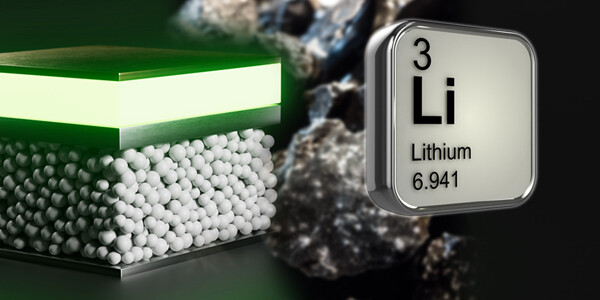
In a move that sent ripples throughout the global lithium industry, China has reportedly halted exports of lithium adsorbents, key materials used in the extraction of lithium from brine and battery metals solutions. This decision, effective since February 1st, has sparked concerns about potential disruptions to the lithium supply chain and further escalated trade tensions between China and the West.
Market Dominance and Strategic Control
China holds a dominant position in the production of lithium adsorbents, estimated to be the world's largest. While precise market figures remain undisclosed due to limited data availability, analysts suggest that China's control over this critical material gives it significant leverage in the global lithium market.
The export halt comes amidst a broader push by the Chinese government to tighten control over strategic resources and technologies. In January, China proposed restrictions on the export of certain battery and lithium technologies, including adsorbents. If implemented, these measures would require Chinese companies to obtain government approval for any lithium processing equipment exports.
Industry Impact and Western Response
The export ban has already impacted major players in the lithium industry. Jiangsu Jiuwu Hi-Tech, a leading Chinese producer of filtration equipment used in lithium extraction, has notified its clients of the export suspension. Other major adsorbent producers, such as Sunresin, are reportedly negotiating with the Chinese government regarding the export restrictions.
This move could significantly affect Western companies' lithium extraction plans. ExxonMobil, for instance, is considering using Chinese processing equipment for its planned lithium operations in Arkansas, while Koch Industries, a major investor in Arkansas lithium developer Standard Lithium, has an agreement with a Chinese firm to use its adsorbents in North America.
The export restriction has also spurred a race among Western companies to develop their own adsorbent technologies. Companies like Vulcan Energy Resources in Germany, which has developed its own proprietary technology, have seen a surge in interest from lithium producers seeking alternative solutions.
Geopolitical Implications
Analysts view China's export restrictions as a strategic move to consolidate its control over the lithium supply chain and assert its dominance in the global battery market. This decision could further intensify the trade war between China and the West, particularly in the realm of critical minerals and technologies.
The move also highlights the growing importance of lithium as a strategic resource. As demand for electric vehicles and other battery-powered devices continues to rise, access to lithium has become increasingly crucial. China's control over the lithium supply chain gives it significant leverage in shaping the future of the global energy landscape.
Looking Ahead
The long-term impact of China's export restrictions remains to be seen. However, it is clear that this move has sent a strong signal to the global lithium industry. Western companies are now under pressure to accelerate the development of their own technologies and diversify their supply chains. The race for lithium dominance is on, and the stakes are higher than ever.
[Copyright (c) Global Economic Times. All Rights Reserved.]






























